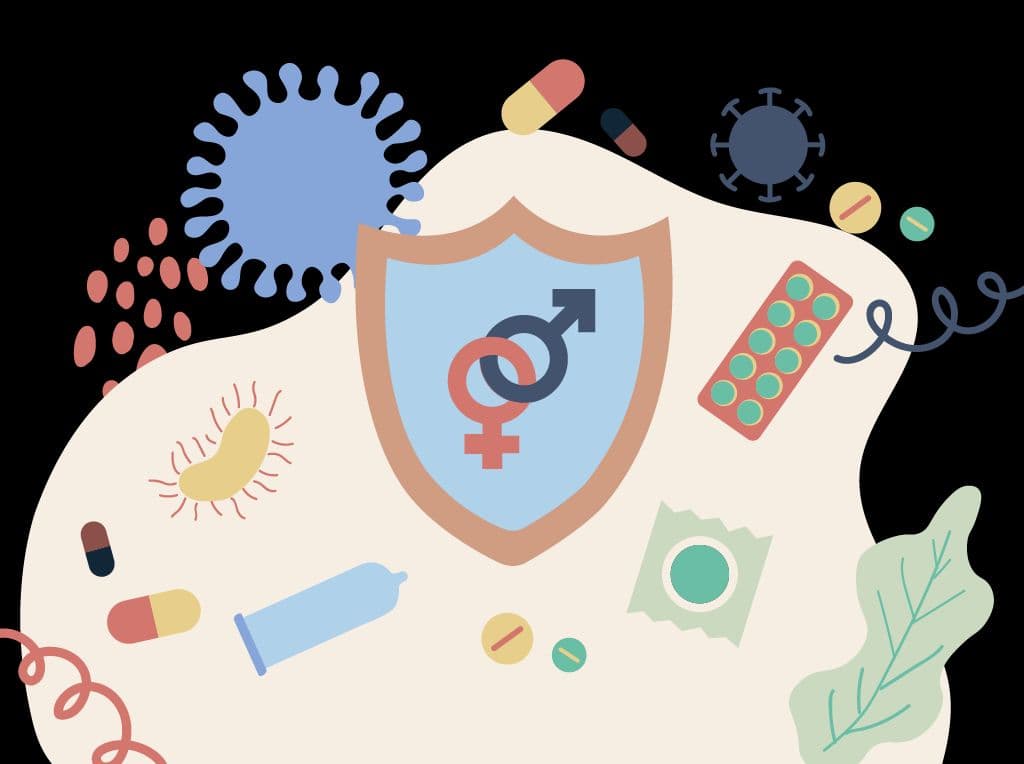Human papillomavirus (HPV) is the name of a group of viruses that cause infection on the skin surface. It is quite possibly the most common viral infection. Due to its commonality, numerous specialists trust HPV infection ought to be viewed as an inevitable result of sexual activity. There were around 43 million HPV infections in 2018, numerous among individuals in their late teens and mid-20s. There are various strains of HPV. Most of these strains can cause genital warts while some others can cause cervical and anal cancer. However, the HPV vaccines can prevent these health problems from occurring.
So how does one then contract an HPV infection?
You can get HPV by having vaginal, anal, or oral sex with somebody who has the infection. It is most commonly spread during vaginal or anal sex. HPV can be passed even when an infected individual has no signs or symptoms. Any sexually active individual can get HPV, regardless of whether you have had intercourse with one or more partners. The onset of HPV symptoms in women and men can present itself years after you have intercourse with an infected person. This makes it difficult to tell when you have contracted the HPV infection
What does an HPV infection look like?
In the vast majority, HPV causes no symptoms and you won't realise that you have it. If any, the male and female HPV symptoms may show up as warts on the genital region or as an abnormal cervical smear. Genital warts are outgrowths or bumps on the skin around the genital zone; vulva, vagina, cervix, penis, scrotum, urethra, anus, or thigh. They might be raised or flat warts, single or numerous, little or large. Some HPV warts can cluster together, framing a cauliflower-like shape. If you do have genital warts, your primary care physician can go over treatment options with you depending on your specific circumstance.
In the vast majority, their immune system will at last clear the infection, and warts will disappear,But for some, these genital warts may remain.. There is no way to tell whether a person's immune system is mostly going to clear the infection or not.
Individuals can be infected with HPV for quite a long time, or even many years before they experience any symptoms of infection. This is the reason ladies ought to get regular PAP screenings. Since PAP screenings give early indications of changes in cells of the cervix, treatment is frequently more fruitful before the onset of any HPV symptoms such as pain or bleeding.
Progression from an initial HPV infection to the disease requires delayed infection with cancer-causing strains of HPV. Regular Pap tests and HPV tests will help your PCP monitor for precancerous changes to the cells of the cervix. The best way to prevent HPV -induced genital warts or cancers is to get the HPV vaccine.

The HPV Vaccine
The HPV vaccine protects against multiple strains of HPV which are the most commonly cause genital warts. If after being inoculated, an individual is infected with a type of HPV, he is unlikely to be infected and, hence, wouldn't spread the infection. FOGSI (The Federation of Obstetric and Gynecological Societies of India) recommends getting vaccinated between the age of 9-45 years, if not already immunised. The vaccine has high effectiveness and very minimal to no side effects. It is important to remember that the risk of conrecting an HPV infections increase with an increase in the number of sexual partners, making safe sex very crucial.
Final Thoughts
There’s no such universal remedy to cure HPV. However, routine cervical cancer screenings for ages 21 and above can go a long way. Besides, if you’re sexually active, you must use condoms every time you have sex. This can reduce the chances of getting HPV. But remember, condoms do not provide complete protection against HPV infections. Therefore, it becomes all the more important to be aware of your body, get the HPV vaccine and engage only in safe sexual practices. Click here to know more about our HPV vaccination services.
Disclaimer: This information is educational and should not be construed as medical advice. Please consult your doctor before making any dietary changes or adding supplements.
Proactive For Her is a digital clinic for women, offering accessible, personalised, and confidential healthcare solutions. We offer out-patient care, diagnostic services and programs for various health concerns of Indian women, across their lifetime - from puberty to pregnancy to menopause.

